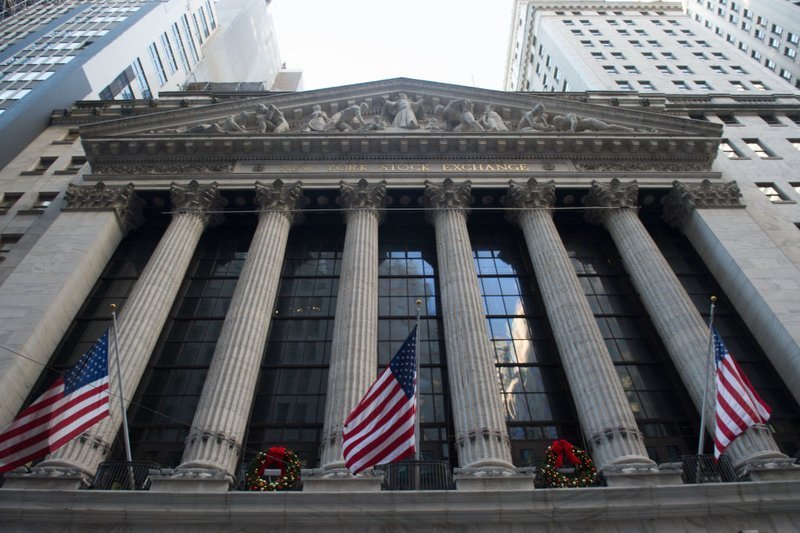做空能賺錢,但是討人嫌

|
如果你低價買進股票、高價賣出,既能賺上一筆,而且大家都很高興。如果你高價借入股票、低價賣出,或許也能賺錢,但估計很多人都會不樂意。這就是做空者的困境,也是為什么做空市場的人會受到各種威脅,小到被臨時限制交易,大到面臨牢獄之災——在市場波動期更是如此。這些人被稱作空頭,他們自稱這么做可以讓市場和公司更誠實。批評者認為他們的行為已經屬于操縱市場。市場監管者謹慎地注視著他們的一舉一動。 形勢 做空指的是高價借入股票、賣掉,再以低價買入歸還,從中賺取差價——如果股票沒漲價的話。最近的頭條都是關于所謂的主動做空者(activist shorts),雖然他們只占所有做空者的一小部分。大部分賣空行為都是對沖基金或投資機構做的,為的是對沖股價下跌風險,或者因為他們覺得股票價格虛高了。與此不同,主動做空者會對公司進行調研,尋找他們覺得有不實交易或假賬的公司作為獵物,散布消息(通常是匿名的),如果一切順利,就坐等股票下跌。雖然主動做空者幾十年來一直在號召新人加入,但他們隊伍的壯大得益于近幾年社交媒體促進了對相關分析和理論的傳播。根據Activist Insight Ltd的數據,2017年,做空機構共向全球186家公司開戰,2013年是130家。戰場也蔓延了,他們把目光轉向了澳大利亞、日本、新加坡和南非。今年6月,港股新秀麗公司的CEO因為被空頭控其學歷造假而辭職。許多權威人士都不喜歡做空行為,紐交所前主席說做空“令人作嘔、毫不符合美國作風”。 背景 荷蘭交易者早在17世紀就開始做空,其中包括郁金香泡沫時期。拿破侖把做空政府債券的交易者稱為“國家叛徒”。如果想做空長期上漲并無下跌趨勢的股票(比如郁金香)非常困難。但仍然可以實現。著名的“熊市之王”杰西·利弗摩爾1906年舊金山大地震前做空聯合太平洋(Union Pacific)鐵路公司大賺一筆。2001年安然公司的破產可謂是吉姆·查諾斯等空頭的顯赫戰功,當時查諾斯是第一批質疑公司賬目的人。2011年開始,渾水公司的卡森·布洛克因為捕獵低調神秘的美股中資企業而使得做主動做空者這一新物種名聲大震,他的獵物中包括已經破產的嘉漢林業。但這種行為可能會招致危險:布洛克說他一度停止做空中國公司,因為有“紋了身的黑社會”找他。在大多數股票市場,做空行為都是合法的,但不借股直接做空的無擔保賣空行為是非法的。遇上市場不景氣,政府和監管機構可能會為了遏制下跌而限制賣空行為。美國在大蕭條時期也像英國、德國、日本一樣,限制做空,2008年金融危機時更是完全禁止做空。中國監管機構認為“惡意”做空是2015年股市危機的原因之一,對此類操作加以限制,逮捕了有關交易人員。 觀點 批評家認為做空會把市場不景氣變成徹徹底底的恐慌。他們還指出做空者能在賣出前散布謠言蒙騙投資者,這種手法被稱為“扭曲股價、低價做空”(short and distort)。支持做空的一方稱,不能因為可能有人濫用做空就唾棄所有的空頭,就像不能因為有人“哄抬股價、高價賣出”(pump and bump)就讓所有因為對某只股票感興趣而推高其股價的投資者因此蒙羞。做空者說他們只是懷疑主義者,通過找出被分析師、審計人員、投資者忽略的錯誤定價或欺詐行為,提醒投資者警惕市場一波接一波的狂歡。查諾斯的公司名為Kynikos,是英語單詞“憤世嫉俗者”(cynic)的希臘詞源。盡管做空經常被認定為不合法,但《大空頭》里看空房地產市場的投資者卻是正面形象。做空行為也從研究人員那里得到了一些支持:一篇論文發現空頭有利于減少操縱收益報表的行為;另一篇論文顯示,空頭對美股中國企業股票走勢的判斷優于股票分析師。還有一篇論文的結論稱,主動做空者說的往往是“正確事實”。(財富中文網) 譯者:Agatha? |
If you buy low and sell high, chances are you’ll be richer and everybody will be happy. Sell low after borrowing high and you may be rich, but odds are quite a few people will be anything but pleased. That’s the short seller’s predicament, and why investors who bet that stocks will drop get threatened with everything from temporary restrictions to serious jail time, particularly during times of market turmoil. Shorts, as they’re known, say they’re keeping markets and companies honest. Critics say their practices can blur into market manipulation. Regulators are keeping a wary eye on them. The Situation Short sellers borrow shares, sell them, buy them back at a lower price and profit from the difference — unless the stock rises. The biggest headlines these days are being made by so-called activist shorts, even though they account for only a small slice of short selling. Most shorting is done by hedge funds and institutional investors to cushion their investments against falling stock prices or to bet that shares have risen too high. Activists, on the other hand, research companies to find targets that they allege have dodgy business or accounting practices, spread the word (sometimes anonymously) and, if all goes as planned, watch the stock slump. Although activist shorts have been calling out companies for decades, their numbers have swelled thanks to the rise of social media as a platform for disseminating theories and analysis. In 2017, shorts began campaigns against 186 companies globally, versus 130 in 2013, according to Activist Insight Ltd. The campaigns have spread geographically, too, with shorts turning their attention to Australia, Japan, Singapore and South Africa. In June, the chief executive officer of Hong Kong-listed Samsonite International SA resigned after a short seller alleged he had falsified educational credentials. Many authorities dislike short selling — the former head of the New York Stock Exchange has described the practice as “icky and un-American.” The Background Dutch traders were shorting as long ago as the 1600s, including during the tulip bubble. Napoleon labeled short sellers of government securities “treasonous.” Short selling stocks — as opposed to, say, tulips — is particularly challenging because equity markets have a long-term track record of moving up rather than down. Still, it can be done. Jesse Livermore, known as the “King of the Bears,” made a fortune shorting railroad operator Union Pacific shortly before the 1906 San Francisco earthquake. The collapse of Enron Corp. in 2001 marked a notable scalp for shorts including Jim Chanos, who had been among the first to question its accounting. Starting in 2011, Muddy Waters’ Carson Block raised the profile of the new breed of activist shorts by taking aim at under-the-radar Chinese companies listed in North America, including the now bankrupt Sino-Forest Corp. The practice can be perilous: Block said he stopped shorting Chinese companies for a time because “tattooed gangsters” came looking for him. Short selling remains legal in most stock markets, unlike so-called naked short selling — shorting without having first borrowed the shares. When markets go bad, governments and regulators sometimes impose restrictions in an effort to help stem the slide. The U.S. targeted short selling during the Great Depression and joined the likes of the U.K., Germany and Japan in limiting short selling or banning it during the financial crisis that erupted in 2008. China’s regulator blamed “malicious” short selling in part for a stock market crash in 2015, placing limits on the practice as well as arresting traders. The Argument Critics say short sellers can transform downturns into full-blown panics. They also point to the ability of shorts to hoodwink investors by spreading false rumors before exiting a trade, a technique known as “short and distort.” Defenders say the potential for abuse shouldn’t discredit all shorts any more than “pump and dump” schemes disgrace all investors who whip up interest in a stock to push it higher and then sell it. Short sellers say they are skeptics who alert investors to bouts of market euphoria, identifying mispricing or deception that analysts, auditors and investors overlook. The name of Chanos’s firm is Kynikos – the Greek from which the English word “cynic” was derived. Often vilified as market outlaws, investors betting against the housing market were portrayed as the good guys in the film “The Big Short.” Shorts have some backing from researchers: One paper found that the practice discourages the manipulation of earnings reports, while another showed that shorts made more accurate predictions of the share performance of U.S.-listed Chinese firms than stock analysts did. A third concluded that activist shorts were usually “factually right.” |













